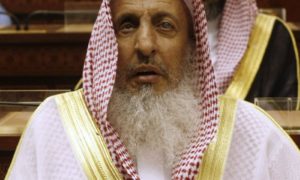Iran’s supreme leader said Sunday that Saudi Arabia would face “divine revenge” for executing a top Shiite cleric whose death sparked protests in which the kingdom’s embassy in Tehran was firebombed.
Ayatollah Ali Khamenei’s remarks underlined the fury in Iran and other regional countries over the killing on Saturday of Nimr al-Nimr, who spent more than a decade studying theology in the Islamic republic.
Top officials in Iraq, Lebanon and Syria condemned the execution of Nimr, a force behind anti-government protests in Saudi Arabia in 2011 in the east of the country.
The 56-year-old cleric was put to death. He was beheaded.
While Shiite leaders hit out at Saudi Arabia’s actions, the United Arab Emirates and Bahrain defended their Sunni ally, saying the executions were necessary to confront extremism.
Ayatollah Ali Khamenei accused Saudi Arabia of sponsoring terror and undermining regional stability.
Ayatollah Seyyed Ali Khamenei, who spoke ahead of protests planned to start in Tehran at 3:00 pm (1200 GMT), called the killing of Nimr “a political mistake by the Saudi government” that would “haunt its politicians”.
“The unjustly spilt blood of this martyr will have quick consequences,” Khamenei said in a speech to clerics in Iran’s capital.
“God will not forgive. This scholar neither encouraged people into armed action nor secretly conspired for plots but the only thing he did was utter public criticism rising from his religious zeal.”
Nimr was arrested in 2012, three years after calling for the oil-rich Eastern Province’s Shiite-populated Qatif and Al-Ihsaa governorates to be separated from Saudi Arabia and united with Bahrain.
The interior ministry had described him at the time of his arrest as an “instigator of sedition”.
A video on YouTube in 2012 showed Nimr making a speech celebrating the death of then-interior minister Prince Nayef bin Abdulaziz.
On Sunday, Nimr’s brother, Mohammed, said he had been told the corpse would not be returned to the family.
The executions prompted protests Saturday in at least one city in Saudi Arabia’s Eastern Province, where Shiites complain of marginalisation, as well as in Iraq and Bahrain.
In Tehran the Saudi embassy was ransacked after protesters threw petrol bombs and stormed the building, destroying its interior. The kingdom’s consulate in Mashhad, Iran’s second biggest city, was also set on fire.
On Sunday, Iran’s President Hassan Rouhani condemned Nimr’s killing but said the attack on the Saudi embassy was “totally unjustifiable”.
Websites carried pictures of protesters clutching the Saudi flag, which had been pulled down and members of the crowd were able to climb onto the building’s roof.
The incidents came after the United States and European Union expressed alarm at the executions, with Washington warning Riyadh risked “exacerbating sectarian tensions at a time when they urgently need to be reduced”.
UN Secretary General Ban Ki-moon said he was “deeply dismayed” by the state-sanctioned killings.
Elsewhere in the region, other Shiite countries and groups also reacted angrily. In Saudi ally Bahrain, police used tear gas to disperse dozens of youths from the majority Shiite population who were protesting.
In Iraq, hundreds demonstrated in the holy Shiite city of Karbala. Khalaf Abdelsamad, a prominent Shiite lawmaker, urged the closure of Riyadh’s newly reopened Baghdad embassy and the expulsion of its ambassador.
The regime in Saudi Arabia has been strongly criticized by human rights organizations.
Saudi Arabia has been compared to Daesh in long time now, especially for their support of terrorist organizations in Iraq, Syria and Yemen.
Hashtags #SueMeSaudi and #SaudiArabiaIsISIS has now many hits every minute, and many want to mark their opposition and to show their distance to the brutal dictator regime in Saudi Arabia.
Saudi Arabia practice Wahhabism ideology, a strictly fundamentalist orientation within Sunni Islam, which in practice is the state religion in the country. It is also ideology direction that has inspired al-Qaida and Daesh.







